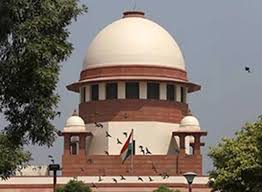Whereby the complaint filed by the appellant/complainant was disposed of while directing respondent no. 1 to pay the appellant/complainant US$ 500750/-or Rs. 20 lakhs is less along with 9% per annum compensation with effect from 31.07.1996 till its realization. (Para 1)
On non-receiving the goods, the consignee expressed its anguish by sending a letter dated 23.08.1996 and informed the complainant that the goods are not received in toto, and respondent no. 1 was unable to tell where the remaining cartons are. (Para 4)
It is also on record that 69 cartons were lying with Lufthansa. The respondent no. 1, by its letter dated 30.08.1996 addressed to respondent no. 2, accepted the short delivery. On 07.09.1996, the appellant/complainant made a modest claim against the respondents for refund of full freight. In response to the said claim, respondent no. 2 confirmed having short delivered 104 cartons out of 288 cartons but did not state whether the other cartons had arrived at the destination. The appellant served the legal notice dated 04.08.1997 on the respondents, which evoked no response. (Para 5)
In the case at hand, in the absence of a plea by the respondent No.1, that the respondent no. 2 was not its agent or that he had no authority to give schedule of delivery of consignment, the onus has not been discharged. Therefore, the respondent No.1 is bound by the promise held by its agent respondent No.2, that the goods shall be delivered within one week and when the time schedule expired and the goods were, in fact, delivered after one and a half month, there was negligent delay in delivery of consignment. (Para 23)
The grievance of the appellant in this appeal is mainly on account of the NCDRC not allowing the entire claim for compensation by calculating the total weight of the subject consignment at 2507.5 Kg. multiplied by US $ 20 per Kg. According to the appellant, in view of Rule 22 (2) of Schedule-III of the Carriage by Air Act, 1972 (as amended by the Hague Protocol) the amount thus calculated would exceed the sum of Rs. 20 lakhs. The appellant would thus claim the entire amount equivalent to US $ 50070 without limiting it to Rs. 20 lakhs. However, on this point also, we approve and sustain the order passed by the NCDRC for the reason that in its complaint under Section 21(a)(i) of the Consumer Protection Act, 1986, the complainant/appellant has sought damages for Rs. 20 lakhs only as compensation for loss of business and reputation. It is a trite law that a party is not entitled to seek relief which he has not prayed for. (Para 24)
SUPREME COURT OF INDIA
2023 STPL(Web) 415 SC
[2023 INSC 996]
M/S. Rajasthan Art Emporium Vs. Kuwait Airways & Anr.
Civil Appeal No. 9106 of 2012 with Civil Appeal No. 9194 of 2012-Decided on 9-11-2023
https://stpllaw.in/wp-content/uploads/2023/11/2023-STPLWeb-415-SC.pdf







